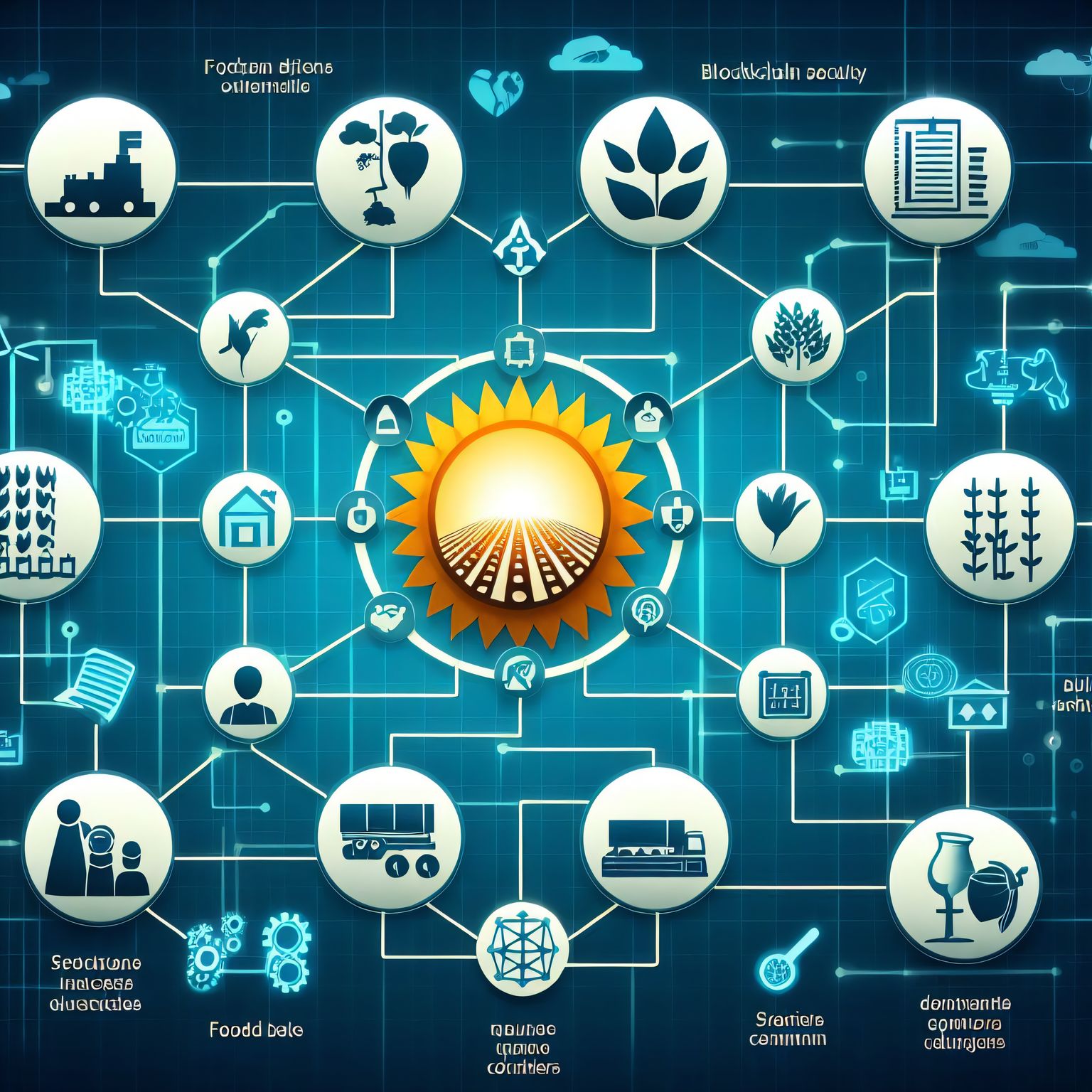Ever found yourself pondering the origins of your supermarket purchases? In our interconnected world, food items often embark on extensive journeys before they land on our dinner tables. This global reach broadens our culinary horizons but also complicates food traceability. When food safety issues like salmonella contamination arise, pinpointing the source becomes a Herculean task. It’s no surprise that consumer trust is dwindling and food fraud is escalating, leading to substantial financial losses each year.
But imagine a technology that could track your food from the farm to the supermarket shelf, recording ingredients, monitoring environmental conditions, and highlighting any irregularities for immediate investigation. A system that’s secure, transparent, and accessible to all stakeholders, from farmers to distributors to retailers and even consumers. Welcome to the world of blockchain.
Blockchain: A Game Changer for the Food Industry?
While blockchain is often associated with cryptocurrencies like Bitcoin, this tamper-proof, decentralized ledger technology holds immense potential for revolutionizing supply chains, including the food supply chain. Blockchain provides a permanent, shared record of food items as they change hands. Smart sensors can record data such as time, temperature, location, and more at every stage of the journey, from a mango picker to your local supermarket.
With access granted to all authorized supply chain partners, any issues are quickly flagged for action. And since the records are immutable, they cannot be deleted or altered by any one party without consensus from the others. This level of transparency fosters accountability, accelerates response times, and enables precise recalls, significantly enhancing consumer safety from farm to fork!
Academic Research Findings
But does blockchain actually resonate with consumers? Recent research provides some insights.
In one study, a “Source Verified” honey label, enabled by blockchain, enhanced perceptions of quality and purchase intent compared to products without the label. The blockchain traceability signal suggested a higher level of credibility and commitment to quality.
Interestingly, the impact varied based on brand familiarity. Well-known brands didn’t benefit from the label, but for lesser-known brands, it significantly improved perceived quality and purchase intent. This indicates that blockchain adoption could help emerging brands differentiate themselves amidst widespread honey fraud. The technical details of blockchain are less important to consumers than the assurance of rigorous quality control efforts.
Key Considerations for the Food Industry
So, what does this mean for the food industry considering blockchain adoption? Here are some key takeaways from the research:
- Start with products susceptible to fraud: Categories like olive oil, juices, and seafood, which are often plagued by counterfeit ingredients, could benefit most from blockchain’s verification capabilities. Success in these areas could pave the way for broader adoption.
- Get all supply chain partners onboard: To realize the decentralized, consensus-based vision of blockchain, network adoption needs to extend beyond growers or distributors. It requires end-to-end collaboration. Standards bodies are already working to address this challenge.
- Educate through marketing: Consumers respond more to indications of blockchain use rather than technical specifics. Clear marketing communications and verifiable labels indicating blockchain checks are crucial.
- Give shoppers visibility: Supply chain visibility empowers and intrigues today’s consumers. Forward-thinking brands could even offer access to tracing views, with appropriate privacy controls, to engage and reassure customers.
While food is just one application, this academic study signals blockchain’s potential to meet transparency demands if framed appropriately for customers.
A Catalyst for Sustainable and Ecological Food Choices
In an era where consumers are increasingly conscious of their environmental footprint, the demand for sustainable and ecological food products is on the rise. However, the challenge lies in verifying the authenticity of these products and ensuring they adhere to sustainable practices from farm to fork. This is where blockchain can make a significant impact.
Blockchain’s inherent transparency and traceability can help consumers make informed decisions about their food purchases. For instance, blockchain can provide detailed information about a product’s journey, including its origin, the farming practices used, the carbon footprint associated with its transportation, and even the fair trade certifications it holds. This level of detail can help consumers choose products that align with their values and support sustainable practices.
Moreover, blockchain can also play a crucial role in reducing food waste, a significant issue in the food supply chain. By providing real-time information about a product’s shelf life, blockchain can help retailers manage their inventory more efficiently and reduce unnecessary waste.
Furthermore, blockchain can facilitate the growth of local food networks by providing a transparent platform for small-scale farmers to showcase their sustainable practices and connect directly with consumers. This not only supports local economies but also reduces the carbon emissions associated with long-distance food transportation.
In essence, blockchain can empower consumers to become active participants in the food supply chain, promoting a more sustainable and equitable food system. By choosing blockchain-verified products, consumers are not just purchasing food; they are voting for a more transparent, sustainable, and fair food industry.
The Future of Food Transparency: Empowering Consumers with Blockchain
As we move towards a future where sustainable living and ecological food products are increasingly important, blockchain technology could play a pivotal role in restoring consumer trust in the food supply chain. By offering unparalleled transparency and traceability, blockchain can help ensure food safety, combat food fraud, and ultimately, lead to a more sustainable and trustworthy food industry. The future of food transparency is here, and it’s powered by blockchain.



